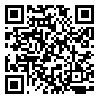Volume 4, Issue 2 (4-2011)
IJMEHM 2011, 4(2): 44-52 |
Back to browse issues page
Download citation:
BibTeX | RIS | EndNote | Medlars | ProCite | Reference Manager | RefWorks
Send citation to:



BibTeX | RIS | EndNote | Medlars | ProCite | Reference Manager | RefWorks
Send citation to:
Nikouenejad L. Considering human cloning according to the anthropological view of Kant . IJMEHM 2011; 4 (2) :44-52
URL: http://ijme.tums.ac.ir/article-1-5052-en.html
URL: http://ijme.tums.ac.ir/article-1-5052-en.html
Abstract: (10752 Views)
Cloning, especially human cloning, is the latest technology of the present time and has become known as "the debate of the century". Since its appearance, the technique has created global concern for scholars. The physical injury ensuing from the manipulation of women ovaries, nucleus and embryo, potential mental and spiritual harm, incurable disease and early aging are among concerns in this regard which necessitate research and investigation. Providing a precise philosophical framework to alleviate these concerns and end the battle between scholars of natural sciences and humanities over this technology calls for more research and investigation with a deep and philosophical view.In the present manuscript titled "Human cloning technology with a view to Kant's anthropology", first philosophical thoughts and ideas of Kant about human beings are reviewed, his anthropologic thoughts and ideas were analyzed. Finally we conclude that human cloning conflicts with Kant's accounts in anthropology because according to Kant, humans have cognition, free will, and self-discipline, and they have the right to human dignity. According to Kant's anthropology, human cloning technology, whether for therapy or reproduction, should be declared illegal.
Type of Study: Review |
Subject:
History of Medicine
Received: 2013/06/17 | Accepted: 2013/07/13 | Published: 2013/07/13
Received: 2013/06/17 | Accepted: 2013/07/13 | Published: 2013/07/13
Send email to the article author
| Rights and permissions | |
 |
This work is licensed under a Creative Commons Attribution-NonCommercial 4.0 International License. |





